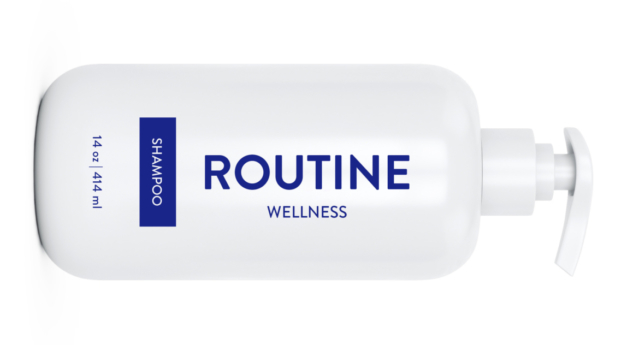
THE CASE FOR BIOTIN
WHAT IS BIOTIN
Biotin is the commonly used name for the Vitamin B7, and is found in small amounts in foods that we should probably eat more of, such as cauliflower, carrots, wheat germ, and wild salmon. The vitamin helps metabolize carbohydrates, fats and amino acids found in our diet into energy. This metabolization assists with healthy cell formation, stronger nails and healthier hair.
WHY DOES ROUTINE USE BIOTIN
Simply put, studies show that a biotin deficiency can lead to hair loss and alopecia. In cases of acute telogen effluvium (a type of disruption in the hair growth cycle caused by different stressors), taking a biotin supplement can help support hair regrowth.
We use biotin not only in our shampoo and conditioner, but also in our hair supplement.
Topically, biotin is known to help develop strong and healthy hair by cleansing the hair of impurities and fortifying the hair follicle from within. This provides you with an immediate impact, and can help add more fullness and bounce to your hair. Finally, biotin is also heralded for its moisturizing and smoothing qualities, which make hair easier to comb and untangle. That’s why we use biotin in every bottle of Routine Shampoo and Routine Conditioner.
In our hair supplement, we use a form of Magnesium Biotinate that is uniquely sourced and is 40X more soluble than traditional forms of biotin. In a double-blind, placebo-controlled study, ingredients used in our supplement were shown to support healthy hair growth in as little as 3 weeks. Read the proof here.
THE SCIENCE
A study of women aged 21 to 75 found that after using biotin for three months, overall hair volume, scalp coverage, and thickness of hair body was significantly increased. After six months, the women saw even more improvement, as well as additional benefits such as increased hair shine. When researchers reviewed 18 cases that involved biotin use for hair and nails, they found that people with genetic predispositions for thinning and brittle hair and nails benefited from Biotin supplementation.
REFERENCES
https://pubmed.ncbi.nlm.nih.gov/23198010/
